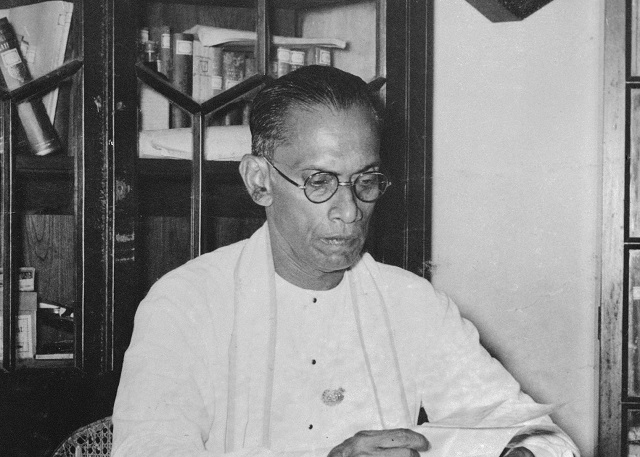S.W.R.D. Bandaranaike Assassinated (1959)
Sat Sep 26, 1959

On this day in 1959, social reformer and founder of the Sri Lankan Freedom Party S.W.R.D. Bandaranaike was assassinated by a Buddhist monk. After his death, his widow Sirima became the world's first female Prime Minister.
Solomon West Ridgeway Dias Bandaranaike (1899 - 1959), commonly referred to by his initials as S.W.R.D. Bandaranaike, was the fourth Prime Minister of the Dominion of Ceylon (now Sri Lanka), founder of the left-wing and Sinhalese nationalist Sri Lankan Freedom Party, and social reformer.
Bandaranaike's administration implemented left-wing reforms in Ceylon, increasing wages, nationalizing public transport, fighting caste-based discrimination, and making May Day a national holiday. His government also removed British air bases from the country and established relations with the People's Republic of China and the Soviet Union.
On September 25th, 1959, Bandaranaike was fatally shot by a Buddhist monk, who avoided being checked for weapons by posing as a member of the clergy. He died from his wounds the next day, and was succeeded in power by his widow Sirima Bandaranaike, who became the world's first female Prime Minister.
"Today, we are living in one of the most important periods of human history, at a period when a great world civilisation is crumbling and we are faced with the task of building a new civilisation to take its place.
I generally accept the principle of the dialectic of a thesis, and antithesis out of which there would emerge a synthesis. There again, this is not the whole truth for there may be more than one antithesis to any given thesis, and therefore, the possibility of more than one synthesis would arise: the discovery of the correct synthesis is the problem that faces us all today."